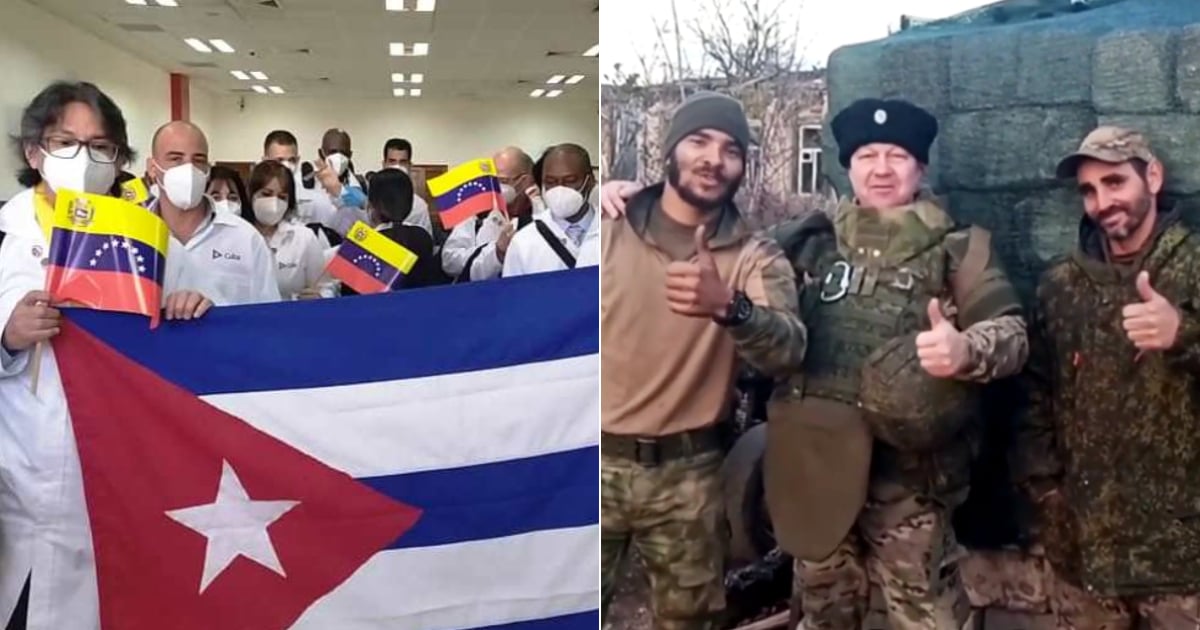A recent U.S. State Department Report confirmed that Cuba will remain at the highest alert level (Level 3) due to its failure to meet the minimum standards for the elimination of human trafficking. This level indicates that the Cuban government not only fails to make significant efforts to address this issue but also continues practices that facilitate and benefit from forced labor.
Despite the Cuban government approving the National Action Plan (NAP) 2023-2026 to combat trafficking, the measures are deemed insufficient given the accusations that the government profits from forced labor, particularly through its labor export program, which includes the controversial overseas medical missions.
Exploitation Practices
The report reveals that the Cuban government continues to deploy workers abroad under coercive and deceptive conditions. Many of these workers, including numerous health professionals, have their passports and professional credentials confiscated, are subjected to strict curfews and surveillance, and receive wages far below what was promised. The government retains a significant portion of their salaries and fails to adequately inform them about the terms of their contracts, which vary by country.
Moreover, authorities threaten and punish workers and their families if they attempt to leave the program. These practices have been extensively documented by victims, NGOs, international organizations, and foreign governments, accusing Cuban officials of facilitating severe human rights abuses and forced labor.
One of the most concerning aspects is that the Cuban government continues to send its citizens to work under exploitative conditions to countries in Africa, Asia, Latin America, and the Caribbean. In many of these destinations, Cuban workers are engaged in programs that border on modern slavery. These programs are presented as missions of solidarity but are essentially mechanisms of labor exploitation that generate significant revenue for the Cuban government, the report highlighted.
Prosecution Deficit
The Cuban government has shown a significant decline in efforts to prosecute and convict trafficking offenses. According to the latest official data, only six victims of sex trafficking were identified in 2022, the lowest number in a decade. Additionally, there were no reports of investigations, prosecutions, or convictions for labor trafficking.
Article 363.1 of the Cuban penal code penalizes labor trafficking and some forms of sex trafficking with prison sentences ranging from seven to 15 years. However, the law does not include clear provisions for cases of child sex trafficking, complicating the effective protection of these minors.
Despite the severity of these accusations, Cuban authorities have not made sufficient efforts to investigate or prosecute those responsible for these crimes. In many instances, government officials are implicated in trafficking networks, creating an environment of impunity and further complicating the fight against these practices. According to the State Department Report, the complicity of authorities not only facilitates labor and sexual exploitation but also deters victims from reporting abuses for fear of retaliation.
International Context
The Cuban government also faces accusations of complicity in the fraudulent recruitment of Cubans to fight in Russia’s large-scale invasion of Ukraine. Reports indicate that Cuban officials facilitated the travel of recruits by expediting passport issuance and omitting exit stamps, interpreted as an attempt to deny awareness of these movements.
According to reports, some Cuban citizens have been deceived with promises of employment in Russia, only to be forced into the armed conflict upon arrival. Cuban authorities have been accused of being complicit in this type of recruitment, facilitating travel documents, and ensuring these movements are not officially detected.
This situation has generated significant international concern and highlighted further deficiencies in the Cuban government’s protection of its citizens. International organizations and foreign governments have intensified their scrutiny and pressure on the Cuban government, urging urgent and effective reform in its human trafficking policies. The international community continues to demand concrete and transparent actions to end these practices and protect the human rights of Cuban citizens.
Impact on Victims
Trafficking victims in Cuba face a double challenge: on the one hand, the exploitation and direct abuses arising from coercive labor conditions; on the other, the lack of protection and support from the government. The few victims who manage to be identified do not receive adequate care and are often re-victimized by a system that ignores or penalizes them for trying to escape exploitation.
In 2022, only six victims of sex trafficking were identified in Cuba, an alarmingly low figure given the magnitude of the problem. The lack of formal procedures for the identification and protection of victims, combined with reliance on self-identification, reflects the Cuban government’s lack of real commitment to addressing this humanitarian crisis. NGOs and human rights organizations continue to denounce the lack of political will and resources dedicated to combating human trafficking on the island.
In its conclusions, the report recommended that the Cuban government implement structural reforms to protect its citizens and comply with international standards in the fight against human trafficking. It also called on the international community to continue pressuring and providing support to ensure these changes are made and that victims receive the justice and protection they deserve.
Key Questions on Human Trafficking in Cuba
Given the alarming findings of the U.S. State Department Report, here are some important questions and answers to understand the human trafficking situation in Cuba better.
Why is Cuba at the highest alert level for human trafficking?
Cuba remains at Level 3 due to its failure to meet the minimum standards for eliminating human trafficking and its continued practices that benefit from forced labor.
What are some of the coercive practices mentioned in the report?
The report mentions that Cuban workers abroad often have their passports and credentials confiscated, are subjected to strict curfews and surveillance, and receive wages well below what was promised.
How does the government respond to accusations of trafficking?
The Cuban government has shown a significant decline in prosecuting and convicting trafficking offenses, and government officials are often implicated in trafficking networks, creating an environment of impunity.
